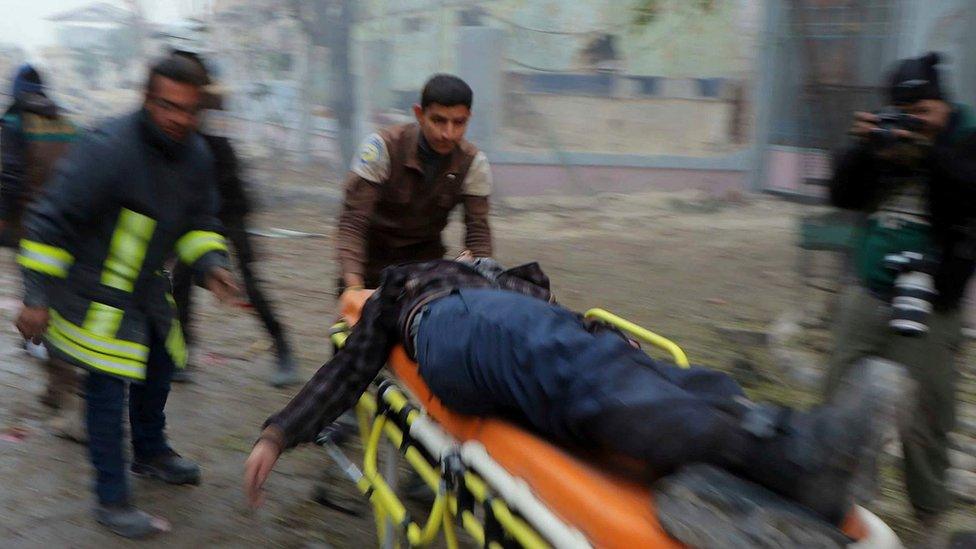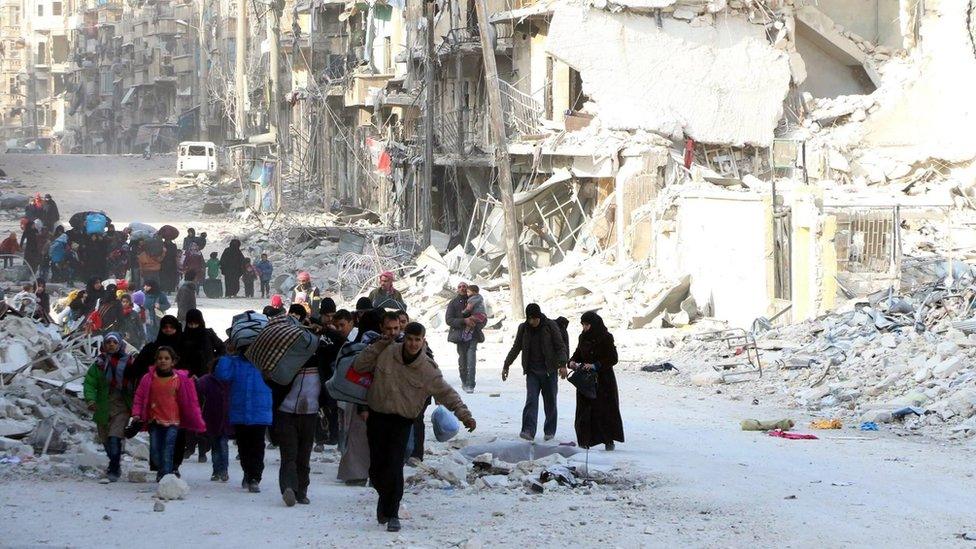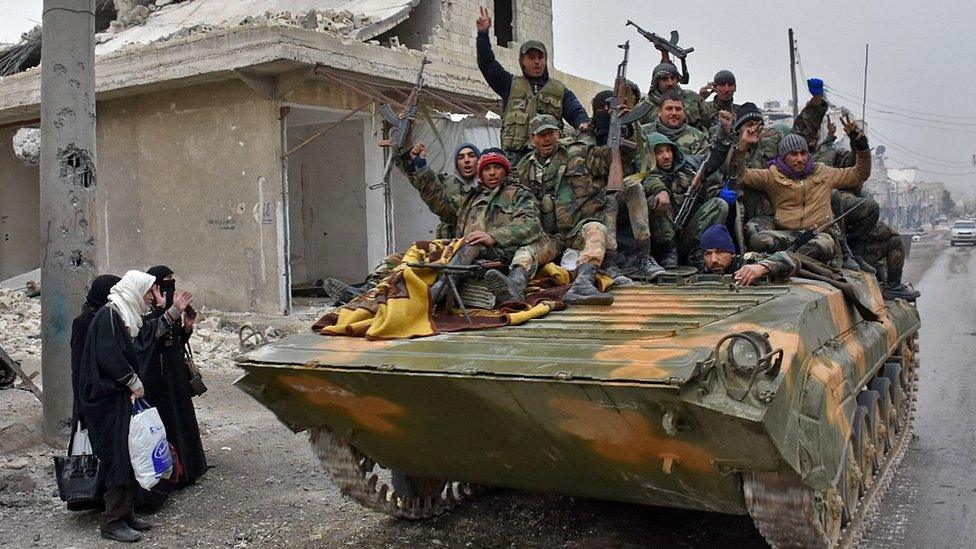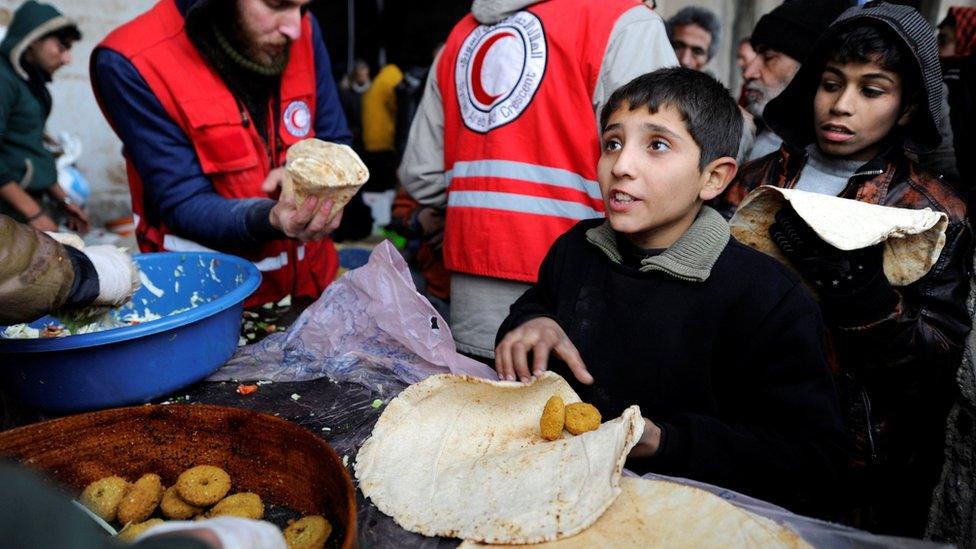Syria war: Aleppo risks becoming giant graveyard - UN
- Published

The Syria Civil Defence posted a photo of the aftermath of an attack on one rebel-held district on Wednesday
A top UN envoy has warned the Syrian city of Aleppo risks becoming "one giant graveyard" as the government advances on rebel-held areas.
Stephen O'Brien pleaded with UN Security Council members to protect civilians "for the sake of humanity".
At least 34 people died in the latest shelling of government and opposition-controlled areas, reports say.
Troops and militiamen have retaken more than a third of the rebel-held eastern part of Aleppo since the weekend.
Stephen O'Brien, the UN's humanitarian affairs chief, made the comments as the Security Council met for an emergency session to discuss the crisis in the city.
"For the sake of humanity we call on - we plead - with the parties and those with influence to do everything in their power to protect civilians and enable access to the besieged part of eastern Aleppo before it becomes one giant graveyard," he told the council.
An estimated 25,000 people have been displaced, he added, while for those inside opposition-controlled areas some are so hungry they are reduced to scavenging.
In an apparent reference to the rebels themselves, he said there were reliable reports that "non-state actors" were preventing civilians fleeing.

Aleppo was Syria's largest city and its commercial and industrial hub before the uprising against President Bashar al-Assad began in 2011.
For much of the country's civil war the city has been divided into government- and rebel-held areas.
But this year Syria, with the help of Iranian-backed Shia Muslim militias and Russian air strikes, has broken the deadlock, launching an all-out assault in September.
On Wednesday, at least 26 people died when government shell-fire hit the rebel-held Jubb al-Qubbeh area, a UK-based monitoring group, The Syrian Observatory for Human Rights, reports.

Activists said many of those killed in Jubb al-Qubbeh were displaced civilians

Troops and militiamen have taken control of the entire northern half of the rebel enclave

Aid agencies are mobilising resources to help civilians crossing the frontlines
The Syria Civil Defence, whose rescue workers are also known as the White Helmets, put the death toll at 45.
Eight others were killed by rockets that hit government-held areas, according to Syrian state media.
Syrian and international aid agencies operating in those areas meanwhile tried to mobilise resources to help civilians crossing the frontlines in search of safety.
The Russian military said it was ready to escort aid convoys into recently recaptured eastern districts, where it estimated more than 90,000 people were living, but that the UN had not yet indicated it was willing to accept.
Lina Shamy spoke to BBC Arabic from inside rebel-held Eastern Aleppo.